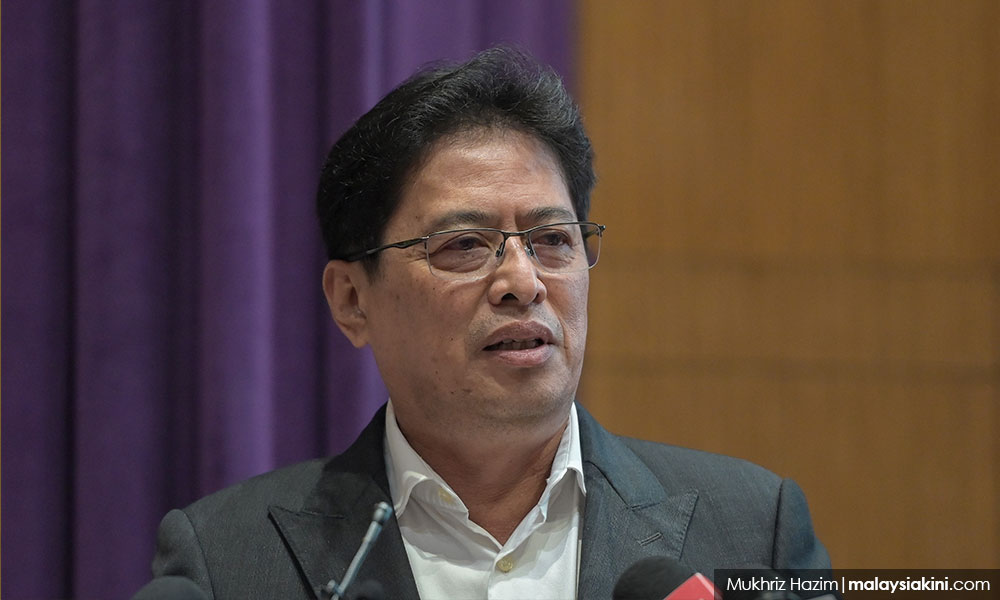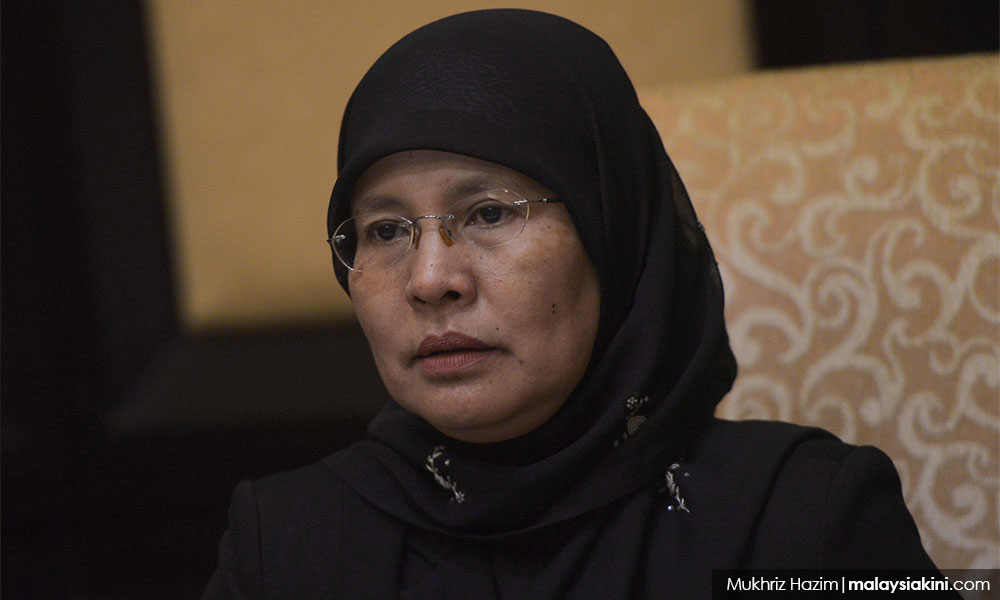It began with blogger Raja Petra Kamaruddin. His portal Malaysia Today published a piece accusing Court of Appeal judge Mohd Nazlan Mohd Ghazali of ‘unexplained wealth’ - RM1 million purportedly received from Low Taek Jho or better known as Jho Low.
Normally, such allegations from Malaysia Today would not cause much of a stir, but his accusations were picked up by some members of Umno, such as former Johor Bahru MP Shahrir Samad who republished parts of the portal’s allegations on his Facebook.
Nazlan (above) subsequently lodged a police report and denied what Raja Petra said, through the chief registrar of the Federal Court. But it did not end there.
MACC chief commissioner Azam Baki suddenly revealed to the media that Nazlan was indeed being investigated. Azam said that this is part of the procedure whenever a report is lodged.
Nazlan, for those unaware, was the judge who convicted former prime minister Najib Abdul Razak in the SRC International case and sentenced him to 12 years in jail, amongst others. The conviction and sentence were upheld by the Court of Appeal last year.
Cast aspersions
Many view the allegations against Nazlan as an attempt to cast aspersions and sully the good name of the judge. It also provides ammunition to many others to besmirch Nazlan. Already, some quarters are using MACC’s confirmation of the probe for their political propaganda.

By and large, people do not believe the allegations against Nazlan, who is known to be a good judge and one of excellent repute.
I previously tweeted that Azam should not have publically announced that Nazlan was being investigated until investigations are well underway and reveal some prima facie case.
Transparent and open
While there is a need for the MACC to be transparent and open in its conduct, there is a greater need for public trust to be reposed in the judiciary, especially when it involves a sitting judge.
Some also believe that it could be an attempt to intimidate other judges who are presiding over high-profile cases, to reach favourable decisions for certain individuals.
Chief Justice Tengku Maimun Tuan Mat in a public speech, had rebuked those who “level unfounded and scurrilous attacks against the judiciary or a particular judge to further their own ends”.

The chief justice did not mention any names or specific instances but it most likely referred to the attacks against Nazlan, amongst others.
The chain of events suggests that there was a deliberate and calculated attack on the independence of the judiciary.
An independent judiciary is vital in any democratic country, being the pillar of the state that interprets laws and acts as the bulwark of our freedoms. When there is interference and when independence is compromised, a country steps closer to becoming a failed state.
‘Walk for justice’
That is why many are up in arms with what they perceive to be efforts to attack the judiciary.
Amongst lawyers, for example, many believe that it is time for a ‘walk for justice’, harkening back to the previous times when the Malaysian Bar marched. The last time the Malaysian Bar walked for the judiciary, was in 2007 after the revelation of what is now known as the ‘Lingam tape’.
“Lawyers don't walk every day. Not even every month. But when they walk, then something must be very wrong,” said Ambiga Sreenevsasan in 2007, as the then president of the Malaysian Bar.
While it may be prudent to see how things pan out, we are surely close to the tipping point. Sooner or later, if the situation does not improve, lawyers may need to go to the streets again. - Mkini
SYAHREDZAN JOHAN is a civil liberties lawyer and political secretary to Iskandar Puteri MP Lim Kit Siang.
The views expressed here are those of the author/contributor and do not necessarily represent the views of MMKtT.




No comments:
Post a Comment
Note: Only a member of this blog may post a comment.